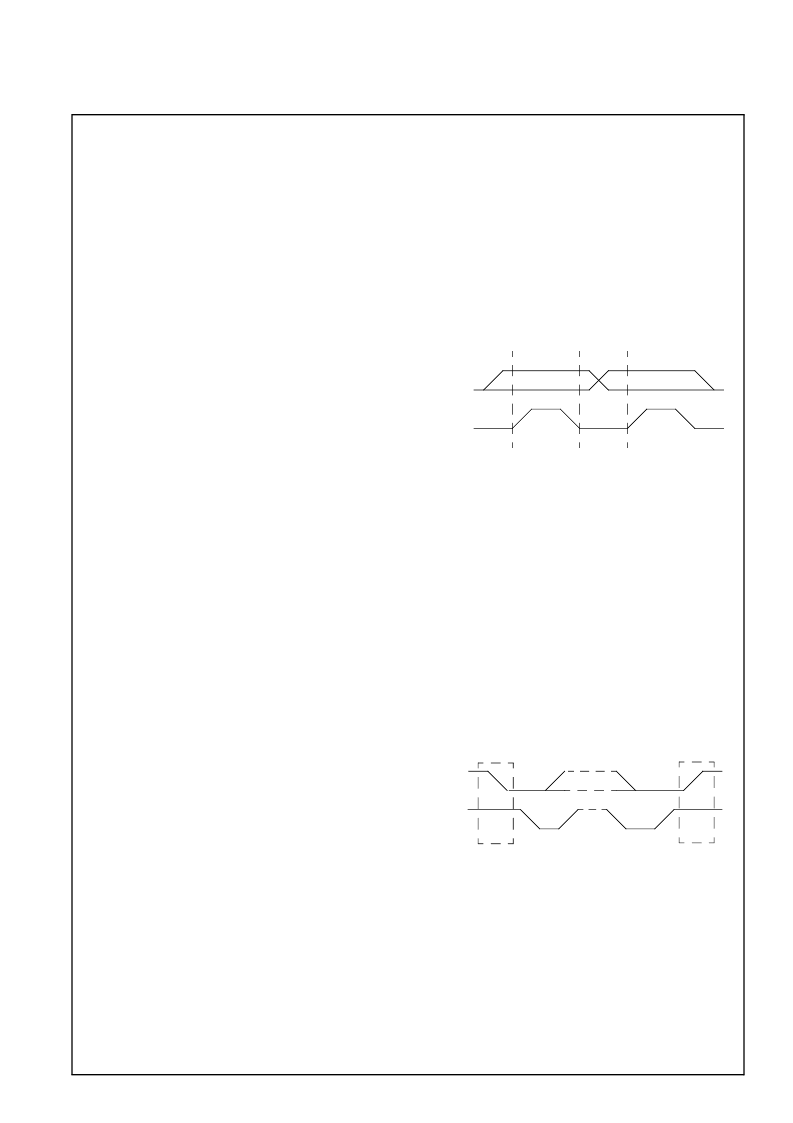- 您現(xiàn)在的位置:買賣IC網(wǎng) > PDF目錄376337 > SC1100 (National Semiconductor Corporation) Geode⑩ Information Appliance On a Chip PDF資料下載
參數(shù)資料
| 型號: | SC1100 |
| 廠商: | National Semiconductor Corporation |
| 英文描述: | Geode⑩ Information Appliance On a Chip |
| 中文描述: | Geode⑩信息家電在一個(gè)芯片 |
| 文件頁數(shù): | 97/348頁 |
| 文件大小: | 2063K |
| 代理商: | SC1100 |
第1頁第2頁第3頁第4頁第5頁第6頁第7頁第8頁第9頁第10頁第11頁第12頁第13頁第14頁第15頁第16頁第17頁第18頁第19頁第20頁第21頁第22頁第23頁第24頁第25頁第26頁第27頁第28頁第29頁第30頁第31頁第32頁第33頁第34頁第35頁第36頁第37頁第38頁第39頁第40頁第41頁第42頁第43頁第44頁第45頁第46頁第47頁第48頁第49頁第50頁第51頁第52頁第53頁第54頁第55頁第56頁第57頁第58頁第59頁第60頁第61頁第62頁第63頁第64頁第65頁第66頁第67頁第68頁第69頁第70頁第71頁第72頁第73頁第74頁第75頁第76頁第77頁第78頁第79頁第80頁第81頁第82頁第83頁第84頁第85頁第86頁第87頁第88頁第89頁第90頁第91頁第92頁第93頁第94頁第95頁第96頁當(dāng)前第97頁第98頁第99頁第100頁第101頁第102頁第103頁第104頁第105頁第106頁第107頁第108頁第109頁第110頁第111頁第112頁第113頁第114頁第115頁第116頁第117頁第118頁第119頁第120頁第121頁第122頁第123頁第124頁第125頁第126頁第127頁第128頁第129頁第130頁第131頁第132頁第133頁第134頁第135頁第136頁第137頁第138頁第139頁第140頁第141頁第142頁第143頁第144頁第145頁第146頁第147頁第148頁第149頁第150頁第151頁第152頁第153頁第154頁第155頁第156頁第157頁第158頁第159頁第160頁第161頁第162頁第163頁第164頁第165頁第166頁第167頁第168頁第169頁第170頁第171頁第172頁第173頁第174頁第175頁第176頁第177頁第178頁第179頁第180頁第181頁第182頁第183頁第184頁第185頁第186頁第187頁第188頁第189頁第190頁第191頁第192頁第193頁第194頁第195頁第196頁第197頁第198頁第199頁第200頁第201頁第202頁第203頁第204頁第205頁第206頁第207頁第208頁第209頁第210頁第211頁第212頁第213頁第214頁第215頁第216頁第217頁第218頁第219頁第220頁第221頁第222頁第223頁第224頁第225頁第226頁第227頁第228頁第229頁第230頁第231頁第232頁第233頁第234頁第235頁第236頁第237頁第238頁第239頁第240頁第241頁第242頁第243頁第244頁第245頁第246頁第247頁第248頁第249頁第250頁第251頁第252頁第253頁第254頁第255頁第256頁第257頁第258頁第259頁第260頁第261頁第262頁第263頁第264頁第265頁第266頁第267頁第268頁第269頁第270頁第271頁第272頁第273頁第274頁第275頁第276頁第277頁第278頁第279頁第280頁第281頁第282頁第283頁第284頁第285頁第286頁第287頁第288頁第289頁第290頁第291頁第292頁第293頁第294頁第295頁第296頁第297頁第298頁第299頁第300頁第301頁第302頁第303頁第304頁第305頁第306頁第307頁第308頁第309頁第310頁第311頁第312頁第313頁第314頁第315頁第316頁第317頁第318頁第319頁第320頁第321頁第322頁第323頁第324頁第325頁第326頁第327頁第328頁第329頁第330頁第331頁第332頁第333頁第334頁第335頁第336頁第337頁第338頁第339頁第340頁第341頁第342頁第343頁第344頁第345頁第346頁第347頁第348頁

Revision 1.1
97
www.national.com
G
SuperI/O Module
(Continued)
4.7
The SC1100 has two ACCESS.bus (ACB) controllers. ACB
is a two-wire synchronous serial interface compatible with
the ACCESS.bus physical layer, Intel's SMBus, and Phil-
ips’ I
2
C. The ACB can be configured as a bus master or
slave, and can maintain bidirectional communication with
both multiple master and slave devices. As a slave device,
the ACB may issue a request to become the bus master.
ACCESS.BUS INTERFACE
The ACB allows easy interfacing to a wide range of low-
cost memories and I/O devices, including: EEPROMs,
SRAMs, timers, ADC, DAC, clock chips and peripheral
drivers.
The ACCESS.bus protocol uses a two-wire interface for
bidirectional communication between the ICs connected to
the bus. The two interface lines are the Serial Data Line
(AB1D and AB2D) and the Serial Clock Line (AB1C and
AB2C). (Here after referred to as ABD and ABC unless oth-
erwise specified.)These lines should be connected to a
positive supply via an internal or external pull-up resistor,
and remain high even when the bus is idle.
Each IC has a unique address and can operate as a trans-
mitter or a receiver (though some peripherals are only
receivers).
During data transactions, the master device initiates the
transaction, generates the clock signal and terminates the
transaction. For example, when the ACB initiates a data
transaction with an attached ACCESS.bus compliant
peripheral, the ACB becomes the master. When the
peripheral responds and transmits data to the ACB, their
master/slave (data transaction initiator and clock genera-
tor) relationship is unchanged, even though their transmit-
ter/receiver functions are reversed.
This section describes the general ACB functional block. A
device may include a different implementation. For device
specific implementation, see Section 4.4.2.4 "LDN 05h and
06h - ACCESS.bus Ports 1 and 2" on page 78.
4.7.1
One data bit is transferred during each clock pulse. Data is
sampled during the high state of the serial clock (ABC).
Consequently, throughout the clock’s high period, the data
should remain stable (see Figure 4-13). Any changes on
the ABD line during the high state of the ABC and in the
middle of a transaction aborts the current transaction. New
data should be sent during the low ABC state. This protocol
permits a single data line to transfer both command/control
information and data, using the synchronous serial clock.
Data Transactions
Each data transaction is composed of a Start Condition, a
number of byte transfers (set by the software) and a Stop
Condition to terminate the transaction. Each byte is trans-
ferred with the most significant bit first, and after each byte
(8 bits), an Acknowledge signal must follow. The following
sections provide further details of this process.
During each clock cycle, the slave can stall the master
while it handles the previous data or prepares new data.
This can be done for each bit transferred, or on a byte
boundary, by the slave holding ABC low to extend the
clock-low period. Typically, slaves extend the first clock
cycle of a transfer if a byte read has not yet been stored, or
if the next byte to be transmitted is not yet ready. Some
microcontrollers, with limited hardware support for
ACCESS.bus, extend the access after each bit, thus allow-
ing the software to handle this bit.
Figure 4-13. Bit Transfer
4.7.2
The ACCESS.bus master generates Start and Stop Condi-
tions (control codes). After a Start Condition is generated,
the bus is considered busy and retains this status for a cer-
tain time after a Stop Condition is generated. A high-to-low
transition of the data line (ABD) while the clock (ABC) is
high indicates a Start Condition. A low-to-high transition of
the ABD line while the ABC is high indicates a Stop Condi-
tion (Figure 4-14).
Start and Stop Conditions
In addition to the first Start Condition, a repeated Start
Condition can be generated in the middle of a transaction.
This allows another device to be accessed, or a change in
the direction of data transfer.
Figure 4-14. Start and Stop Conditions
ABD
ABC
Data Line
Stable:
Data Valid
Change
of Data
Allowed
ABD
ABC
S
P
Start
Condition
Stop
Condition
相關(guān)PDF資料 |
PDF描述 |
|---|---|
| SC1100UFH-233 | Geode⑩ Information Appliance On a Chip |
| SC1100UFH-266 | Geode⑩ Information Appliance On a Chip |
| SC1100UFH-300 | Geode⑩ Information Appliance On a Chip |
| SC11372 | MOBILE RADIO ANALOG PROCESSOR |
| SC11372CQ | MOBILE RADIO ANALOG PROCESSOR |
相關(guān)代理商/技術(shù)參數(shù) |
參數(shù)描述 |
|---|---|
| SC11004 | 制造商:未知廠家 制造商全稱:未知廠家 功能描述:300 / 1200 Bit Per Second Modem |
| SC1100UFH-233 | 制造商:NSC 制造商全稱:National Semiconductor 功能描述:Geode⑩ Information Appliance On a Chip |
| SC1100UFH-266 | 制造商:ADV-MICRO-DEV 功能描述: |
| SC1100UFH-266 B1 | 制造商:Advanced Micro Devices 功能描述:I3O IC OPN |
| SC1100UFH-300 | 制造商:NSC 制造商全稱:National Semiconductor 功能描述:Geode⑩ Information Appliance On a Chip |
發(fā)布緊急采購,3分鐘左右您將得到回復(fù)。